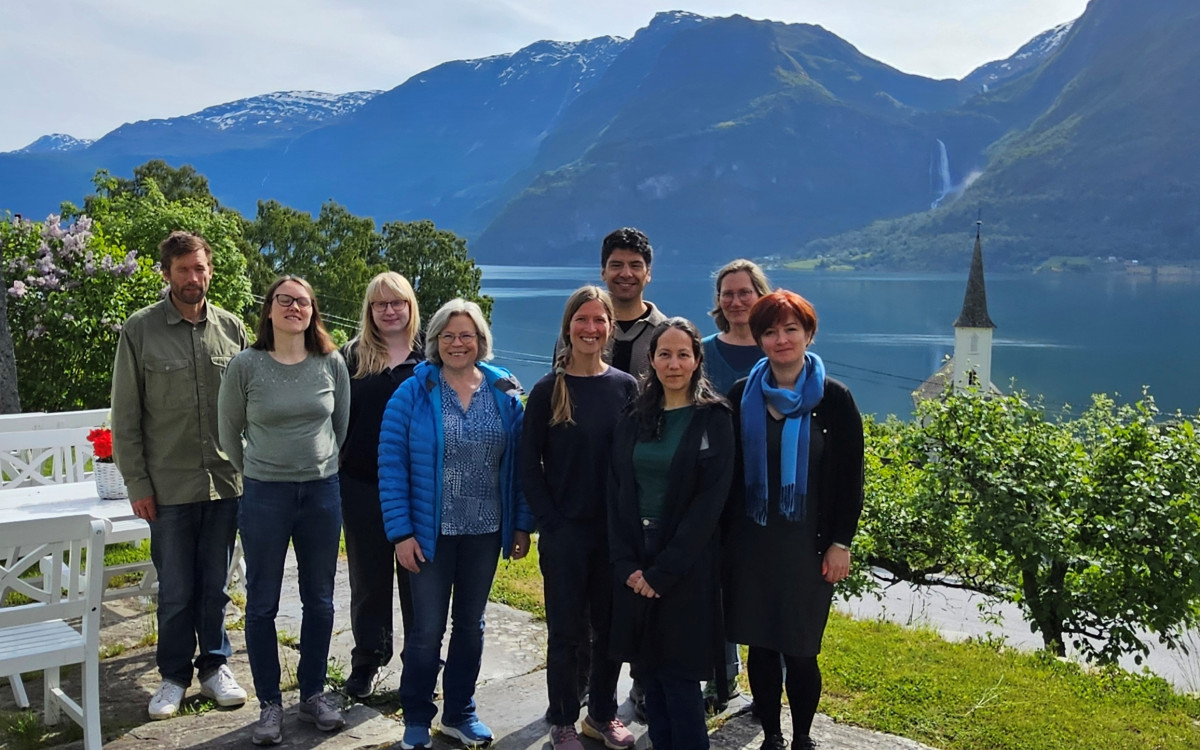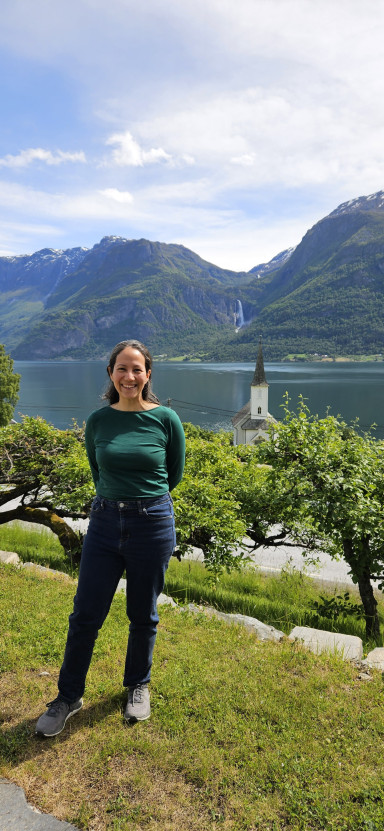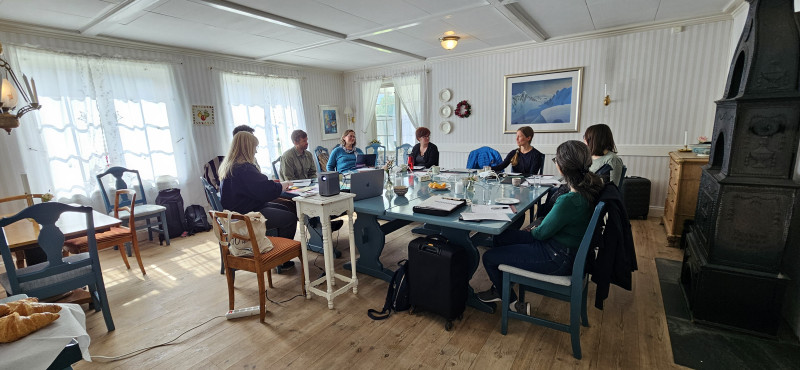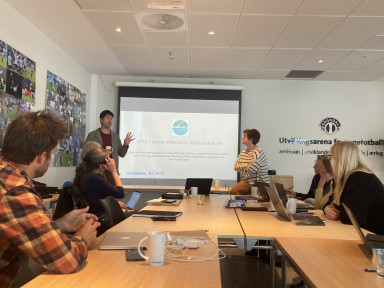Discussed the Implications for Fairness and Equality of the Green and Digital Shift in Working Life

This week, researchers from the Just Transform research project met in Sogndal to discuss recent findings on the interaction between the green and digital shift in the industrial sector. Ten researchers from Western Norway Reserach Institute, Norce, Cambridge University and University of St.Gallen participated in the meeting.
The Norwegian economy and working life are facing major changes linked to the green transition, and in many industries, digitalisation is an important part of the solution. In the Just Transform research project, the overarching question is how a ‘double transition’, combining the green and digital shift will affect working life. How do we ensure that it is sustainable, fair and inclusive?

More polarisation in working life
Policy analyst Jennifer Castañeda-Navarrete from IfM Engage at the University of Cambridge presented a policy analysis to the participants in the project. In total, she has reviewed more than 100 European policy documents to find out how international organisations and national authorities are responding to the green and digital transformation society is undergoing.
The researchers in the project have also interviewed representatives of several international organisations to understand how people talk about the future of working life. Jennifer says that the narrative about the green and digital shift has changed. Where a common understanding used to be that the transition would lead to widespread job losses, today there is more concern about increased polarisation between different forms of work. In particular, the difference between so-called “high” and "low" skilled forms of labour may become greater, while the distinction between those with “low” and “medium” skills becomes blurred.
Another form of polarisation arises between employees who are able to use digital tools, such as artificial intelligence, and those who are not. In the long run, those who know what kind of questions to ask artificial intelligence and who have routines for using these tools will be much more effective than those who do not acquire such skills.
The green will weigh up for the robots
Castañeda-Navarrete explains that the need for workers in renewable technology and the transition to circular value chains is likely to stem the expected decline of workers due to digitalisation in the industry. At the same time, the restructuring processes can have a major impact in regions with a lot of heavy industry and high emission levels. New green jobs will not necessarily appear in the same location, for example where a cornerstone company is located. The analysis shows that if we don't prepare for the transition, the green shift - combined with increased digitisation - could lead to upheavals in certain vulnerable communities.
Gilda Seddighi from Norce and Ragnhild Freng Dale from Western Norway Reserach Institute presented another example of the transition in the labour market, showing that robots can take over certain types of jobs. At the Northern Lights carbon capture and storage facility in Øygarden, a robot is responsible for ensuring that there are no leaks or defects at the facility. Although this saves the operator countless inspection rounds, it does not mean that the need for labour will disappear. Instead, the need for expertise will change. Where the task used to be to detect faults at the plant by listening or smelling, it is now a matter of interpreting large amounts of data collected by a robot.
Social innovation makes industry more resilient
The researchers all agreed that uncertainty is a major challenge. The problem is that we don't know what tools and skills will be needed in the future. For example, many people talk about digitisation, but there is little agreement about what this means. What type of skills do we actually need? Is it being able to code or being able to utilise data? Is it being able to use new tools or do we also need to understand how the tools are programmed?
An important concept in the discussions was ‘social innovation’, which concerns how to ensure an effective flow of information between people, both internally within the organisation and in collaboration with others.
“A prerequisite for benefiting from the skills of an organisation’s employees is to be able to know what other colleagues can contribute with”’ emphasises senior researcher Joaquin Zenteno Hopp at Western Norway Reserach Institute. He says that simple and flexible forms of collaboration are likely to be important in the working life of the future, both internally in organisations and in collaboration with external players.

Changes in work tasks can affect the gender balance
The researchers have also interviewed key players in industry, innovation environments, trade unions and the public sector in Norway to understand key stakeholder’s views on changes associated with the green and digital transition. The researchers are particularly interested in how changes in the labour market will affect inclusion and gender equality. While changing skill requirements is an obvious challenge, the researchers also discussed how such changes are intertwined with factors such as gender, age, language skills, cultural background and disability.

In the interviews, it emerged that many companies want to emphasise skills and competencies when hiring new employees. In practice, this may mean that they make few active attempts to ensure diversity in terms of gender, age and ethnicity in their work force. "This is a paradox. Research shows that companies with more diversity tend to be more flexible and better prepared for crises like the pandemic, than those with a more homogenous work force" Hopp explains. When employees come from different backgrounds, they tend to have different prerequisites for supporting in a rapidly changing environment, compared to a situation where many employees hold the same skills.
‘We know that digitalisation often leads to a skewed gender balance, as there are still far more men than women with higher education in the IT-sector” says Hilde G. Corneliussen, project manager for Just Transform. She continues to say that since many of the disciplines that are driving the green transition in the industry are male-dominated, it is important to monitor the situation carefully.
The project manager was satisfied with the two-day meeting in Western Norway. "We had many good discussions, for instance how our project can contribute to increased understanding of the importance of an inclusive labour market in the green and digital transition.”
